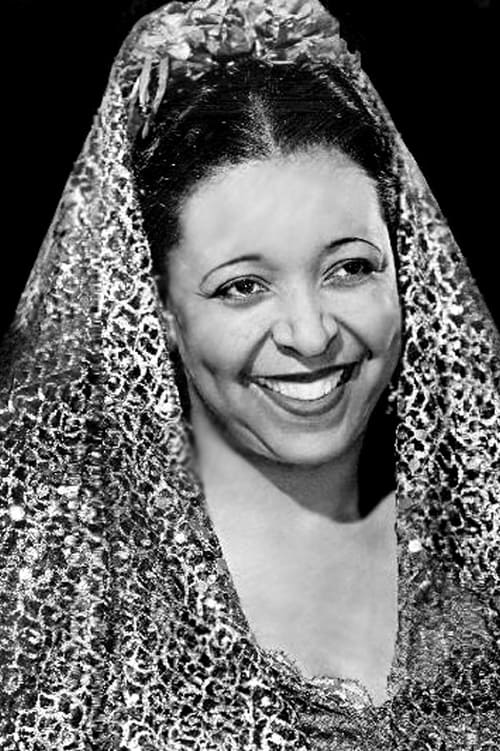Ethel Waters
Nascimento : 1896-10-31, Chester, Pennsylvania, U.S.
Morte : 1977-09-01
História
Ethel Waters (October 31, 1896 – September 1, 1977) was an American blues, jazz and gospel vocalist and actress. She frequently performed jazz, big band, and pop music, on the Broadway stage and in concerts, although she began her career in the 1920s singing blues.
Her best-known recordings includes, "Dinah", "Birmingham Bertha", "Stormy Weather" "Hottentot Potentate", and "Cabin in the Sky", as well as her version of the spiritual, "His Eye Is on the Sparrow". Waters was the second African American to be nominated for an Academy Award.
Description above from the Wikipedia article Ethel Waters, licensed under CC-BY-SA, full list of contributors on Wikipedia.

Herself (archive material)
Broadway: The Golden Age is the most important, ambitious and comprehensive film ever made about America's most celebrated indigenous art form. Award-winning filmmaker Rick McKay filmed over 100 of the greatest stars ever to work on Broadway or in Hollywood. He soon learned that great films can be restored, fine literature can be kept in print - but historic Broadway performances of the past are the most endangered. They leave only memories that, while more vivid, are more difficult to preserve. In their own words — and not a moment too soon — Broadway: The Golden Age tells the stories of our theatrical legends, how they came to New York, and how they created this legendary century in American theatre. This is the largest cast of legends ever in one film.

Self (archive footage)
In 1966, CBC Television invited some of North America's greatest blues performers to gather in a studio in Toronto, recording together and individually in sessions that lasted three days. The result was originally televised as part of the CBC "Festival" series, and now the session video tapes have been found, restored and re-edited. The great Muddy Waters and his band perform "You Can't Lose What You Never Had" and "Got My Mojo Workin'," the latter with James Cotton on harmonica. Willie Dixon goes solo on "Bassology" and (helped by a little '90s technology) performs "Crazy for My Baby" with host Colin James. Plus rare appearances by Sonny Terry and Brownie McGhee, Mable Hillery singing "How Long This Train Been Gone," and delta blues piano player Sunnyland Slim, introducing a whole new generation to this inspiring, soulful music.

Self (archive footage)
Wild Women Don't Have the Blues shows how the blues were born out of the economic and social transformation of African American life early in this century. It recaptures the lives and times of Ma Rainey, Bessie Smith, Ida Cox, Alberta Hunter, Ethel Waters and the other legendary women who made the blues a vital part of American culture. The film brings together for the first time dozens of rare, classic renditions of the early blues.

(archive footage)
É a sequência de Era Uma Vez em Hollywood, de 1974. A produção mostra uma retrospectiva dos principais filmes produzidos pela MGM dentre os períodos de 1930 a 1950. Neste segundo documentário, arquivistas destacaram números musicais pouco conhecidos dos arquivos da MGM, e também tributos a alguns dos times de comédia mais famosos da MGM, como os Irmãos Marx, e Laurel e Hardy, duplas românticas como Spencer Tracy e Katharine Hepburn, e uma montagem de estrelas icônicas como Clark Gable, Mickey Rooney, John Barrymore, Wallace Beery, Joan Crawford, Jean Harlow, James Stewart, Lana Turner e Greta Garbo. Gene Kelly e Fred Astaire apresentam o filme e Kelly dirigiu as cenas introdutórias, como a volta dele à Paris, na qual foi rodada dois dos filmes mais famosos da MGM "Sinfonia de Paris" e "Gigi".
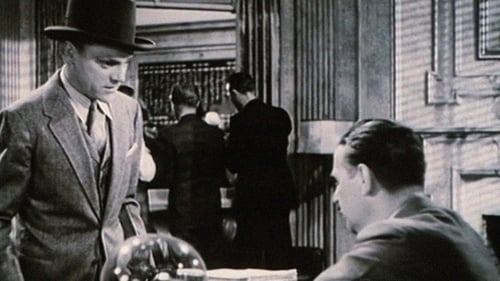
Self (archive footage)
Period music, film clips and newsreel footage combined into a visual exploration of the American entertainment industry during the Great Depression.

Self (archive footage)
Ossie Davis narrates a history of "race films," films made before 1950 which catered to a primarily black audience.

Self (archive footage)
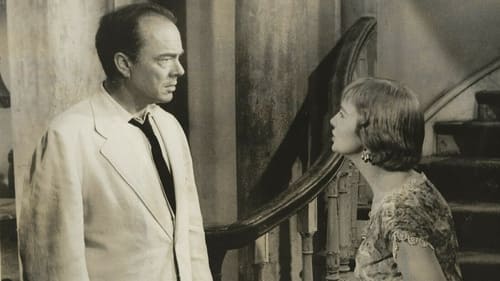
Dilsey
Drama enfocando uma família de aristocratas sulistas que estão tentando lidar com a dissolução de seu clã e a perda de sua reputação, fé, fortuna e respeito.
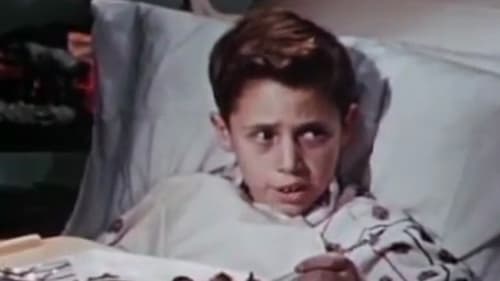
Gladys
While struggling with their son’s serious illness, a young couple experiences conflict when her husband does not understand the wife’s acceptance of Christ. THE HEART IS A REBEL features the beloved Ethel Waters, and is set against Billy Graham’s historic 1957 New York City Crusade, with color scenes of the Crusade at Madison Square Garden.
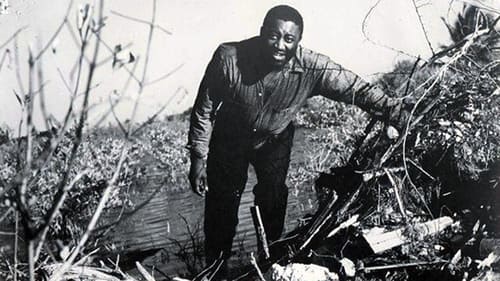
Mom
A trabalhadora luta da tripulação de um barco de camarão descobre um tesouro submerso. Segue-se o problema nesta produção dramática em preto-elenco.
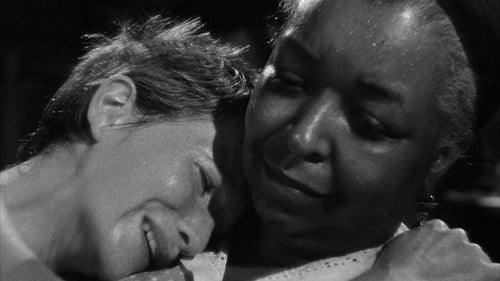
Berenice Sadie Brown
Tomboy, Frances 'Frankie' Addams, dreams of running away with her brother and new fiancée away from the Deep South.
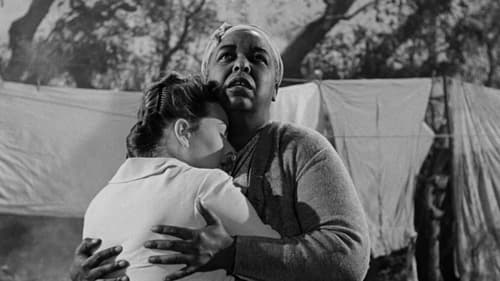
Dicey Johnson
Pinky, a light skinned black woman, returns to her grandmother's house in the South after graduating from a Northern nursing school. Pinky tells her grandmother that she has been "passing" for white while at school in the North. In addition, she has fallen in love with a young white doctor, who knows nothing about her black heritage.

From the great era of musical shorts come three gems that feature legendary African-American performers including Ethel Waters, Eddy Green and the incomparable Dusty Fletcher. The three featured shorts are: Mr. Atom's Bomb, Bubbling Over and Open the Door Richard. These musical classics must be seen!
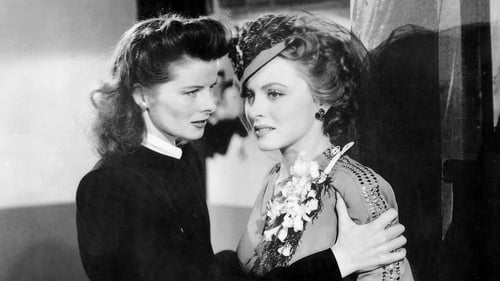
Ethel Waters
A young soldier on a pass in New York City visits the famed Stage Door Canteen, where famous stars of the theater and films appear and host a recreational center for servicemen during the war. The soldier meets a pretty young hostess and they enjoy the many entertainers and a growing romance
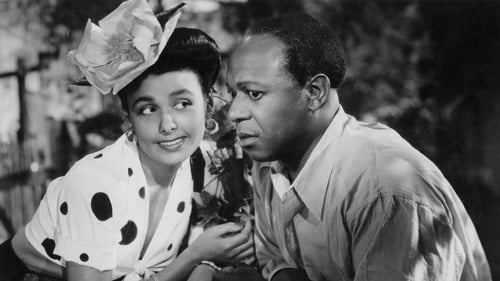
Petunia Jackson
Little Joe é um bom malandro, dividido entre o amor da sua esposa Petúnia e o fascínio de Georgia Brown, uma bonita rapariga de má vida... preso num duelo entre os enviados do Senhor e do Diabo. Como pode a virtude triunfar sobre o Mal? Segundo Petúnia: «Ás vezes, quando se enfrenta o Diabo, temos que o espetar com a sua própria forquilha»

Herself (segment 'On with the Show!') (archive footage)
This short traces the history of sound in the movies, beginning with French scientist Leon Scott's experiments in 1857. Featured are snippets from early sound pictures.
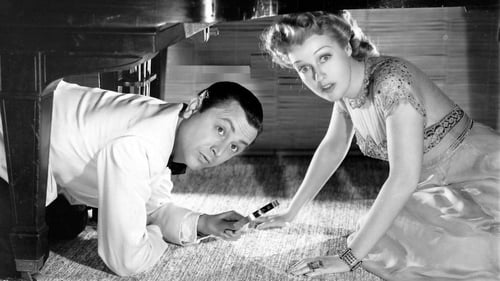
Cleona Jones, Marcia's Maid
Reporter Homer Smith accidently draws Marcia Warren into his mission to stop Nazis from bombing Allied Conwoys with robot-planes.
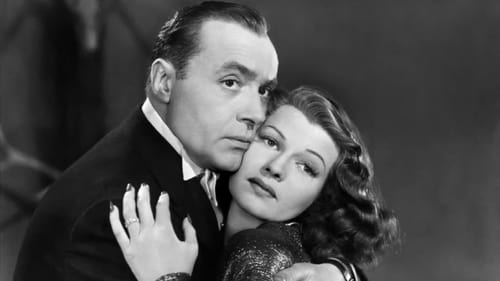
Esther
Breves histórias ligadas por um casaco azarado, uma boa oportunidade para ver algumas grandes estrelas no seu auge. A primeira história é um triângulo amoroso com Charles Boyer, Rita Hayworth, e Thomas Mitchell. O casaco vai para outro proprietário, um conto fantasioso com Henry Fonda, Ginger Rogers, e Cesar Romero. Em seguida é comprado por Elsa Lanchester para seu marido (da vida real), Charles Laughton, dando má sorte ao músico e compositor. Depois ele vai para as mãos de um advogado expulso, Edward G. Robinson, que encontra um colega de classe, George Sanders, em uma muito elegante reunião da faculdade. O casaco é levado por dois bandidos que o perdem e então é encontrado pelos mais pobres dos pobres da comunidade negra na depressão de 1930, interpretados pelo famoso cantor Paul Robeson e a grande Ethel Waters, que vão ao seu pastor, Eddie "Rochester" Anderson, para quem o casaco finalmente traz algo de bom.

Aimed at African Americans and shot at Tuskegee University, this film instructs viewers in the prevention and treatment of tuberculosis by focusing on a pair of sympathetic siblings, George and Mary, whose lives are altered by the disease. Starring Rex Ingram as Dr. Gordon, the film suggests that organized religion is an important defensive location in this particular community, and warns of the dangers of the previous generation’s superstitions and its fear of medicine. The Health Department prominently featured the film at the 1939 World’s Fair. Directed by Edgar Ulmer.
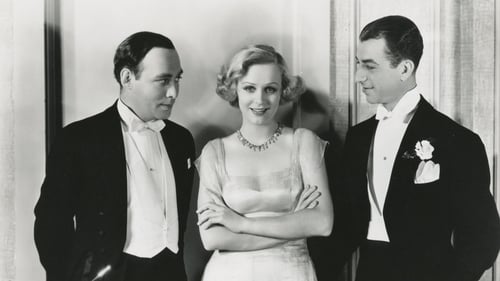
Herself
Conceited radio announcer irritates everyone else at the station.

Ethel Peabody
In this all-black short musical comedy, a woman has a husband so lazy she can stick a pin in him without him waking up... but announcing lunch gets him up pretty fast. She's also saddled with a bevy of his lazy relatives. Four more come by and sing as a quartet. After the wife learns they had been traveling men, she advises them to keep traveling and kicks them out...

Mother of Rufus
A fantasy satire on politics in which a little boy dreams that he becomes President of the U.S. and his 'mammy' is Vice President. The film spotlights two now legendary performers much earlier in their careers: Ethel Waters and Sammy Davis Jr. In his first screen appearance, around the age of seven, pint-sized Davis sings, dances and clowns. Nicknamed 'the beanpole' slim and slinky Waters looks far different from the heavier figure she displayed in Pinky (1949) and Member of the Wedding (1953). Statuesque in a long glamorous white gown, she sings her big hit "Am I Blue." Davis, in turn sings "I'll Be Glad When You're Dead You Rascal You." (Separate Cinema)

Madame Dutoit - Dressmaker (uncredited)
Alfaiate parisiense se encontra fingindo ser um barão para ganhar um dinheiro de um aristocrata, somente para acabar se apaixonando por um jovem e despreocupada princesa.
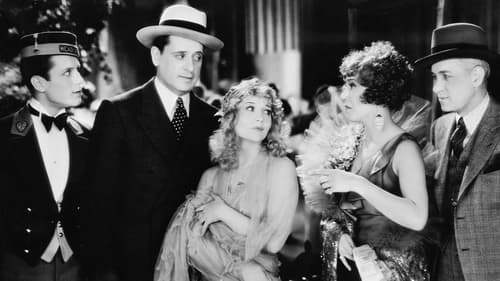
Ethel
With unpaid actors and staff, the stage show Phantom Sweetheart seems doomed. To complicate matters, the box office takings have been robbed and the leading lady refuses to appear. Can the show be saved?
